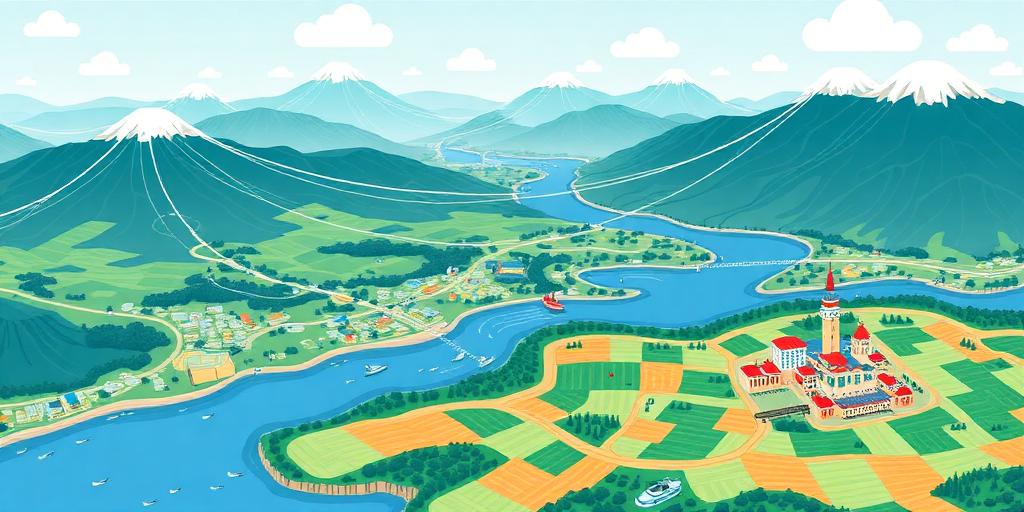The Role of Geography in Shaping Economic Policy
Geography plays a pivotal role in shaping economic policy across nations. The physical landscape, climate, natural resources, and proximity to other markets all significantly influence a country's economic activities and, consequently, its policy decisions. Understanding these geographical factors is crucial for formulating effective and sustainable economic strategies.
1. Natural Resources
The availability and distribution of natural resources, such as minerals, fossil fuels, and arable land, profoundly impact a nation's economy. Countries rich in natural resources may prioritize policies related to resource extraction, export, and management. For instance, nations with significant oil reserves often develop economic policies centered on petroleum production and trade.
- Resource Curse: Paradoxically, resource-rich countries sometimes experience slower economic growth than those with fewer resources. This phenomenon, known as the "resource curse," occurs when over-reliance on natural resources hinders the development of other sectors, such as manufacturing and services. Economic policies must address this by promoting diversification and investing in education and infrastructure.
2. Climate and Agriculture
Climate conditions dictate the types of crops that can be grown and the productivity of agriculture. Regions with favorable climates for agriculture often develop policies to support farming, including subsidies, irrigation projects, and research into drought-resistant crops. Conversely, areas with harsh climates may focus on alternative economic activities, such as tourism or specialized manufacturing.
- Climate Change: Climate change presents new challenges, requiring policies that promote sustainable agriculture, water conservation, and adaptation to extreme weather events. Governments must also consider policies to mitigate climate change, such as reducing greenhouse gas emissions and investing in renewable energy.
3. Location and Trade
A country's geographical location significantly affects its trade relationships and economic integration. Coastal nations often have a trade advantage due to access to shipping routes, while landlocked countries face higher transportation costs. Proximity to major markets also influences trade patterns. For example, countries bordering large economic blocs may benefit from increased trade and investment.
- Trade Agreements: Economic policies often include negotiating trade agreements to reduce barriers and promote international commerce. These agreements can create new opportunities for export-oriented industries and attract foreign investment.
4. Infrastructure Development
Geography influences the development of infrastructure, including transportation networks, energy grids, and communication systems. Mountainous terrain, dense forests, or expansive deserts can pose challenges to infrastructure development, increasing costs and complexity. Policies must address these challenges by investing in innovative technologies and strategic planning.
- Urbanization: The concentration of population in urban centers is influenced by geographical factors, such as access to water, fertile land, and transportation hubs. Urbanization requires policies that manage population growth, provide public services, and promote sustainable development.
5. Geopolitical Considerations
Geography shapes geopolitical relationships, influencing economic policies related to defense, security, and regional cooperation. Countries may form alliances based on shared geographical interests or strategic locations. Border disputes, access to water resources, and control of strategic waterways can also drive economic and political tensions.
- Regional Integration: Economic policies often involve regional integration initiatives, such as customs unions and free trade areas. These initiatives aim to promote economic cooperation, reduce trade barriers, and enhance regional stability.
Conclusion
Geography is a fundamental factor shaping economic policy. Natural resources, climate, location, infrastructure, and geopolitical considerations all influence a nation's economic activities and policy decisions. Understanding these geographical factors is essential for formulating effective and sustainable economic strategies that promote prosperity and resilience.
By considering the unique geographical context of each country, policymakers can develop tailored solutions that address specific challenges and leverage opportunities for economic growth and development.









